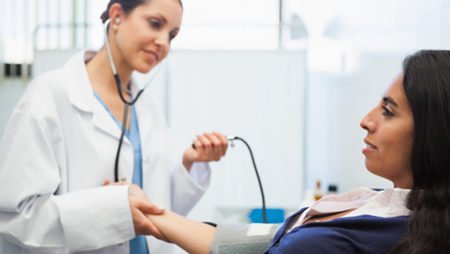
One-third of stroke survivors have some form of persistent disability after an initial attack. Making lasting lifestyle and behavioural changes is key, as these can also have a domino effect in preventing other related health problems.
1. GET PHYSICAL

Be more physically active and try to exercise for 30 minutes, five days a week. Exercising helps to maintain weight, lowers blood pressure, creates a healthy balance of blood fats and improves your body’s ability to handle insulin, all of which can lessen the risk of stroke. If you are overweight or obese, set a reasonable goal if you plan to shed the kilos. Losing between five and 10 per cent of your weight is enough to maintain your blood pressure, blood sugar and cholesterol levels.
2. EAT HEALTHY
Consume food which has less fat, less salt and less sugar. Eat a variety of food and fill your plate with more fruits, vegetables, whole grains, fish and lean meat. Studies show that fresh fruits and vegetables contain antioxidant vitamins and minerals that alleviate the risk of stroke.
3. CHECK YOUR BLOOD PRESSURE

High blood pressure is the single biggest risk factor for stroke. Get your blood pressure checked at least once every five years. You need to go for regular check-ups if you already have high blood pressure, are on medication or have other underlying conditions.
4. SEE THE DENTIST
Studies show that getting your teeth cleaned every six months may lower the risk of a heart attack by 24 per cent and stroke by 13 per cent. A dentist may also spot the signs of heart disease such as swollen gums or loose teeth, enabling you to get treatment early.
5. EAT CHOCOLATE
According to several studies, eating dark chocolate more than once a week lowers the risk of heart disease (by about 40 per cent), diabetes (by about 30 per cent) and stroke (by about 30 per cent). However, keep your portion small to avoid gaining weight.
6. QUIT SMOKING, DRINK SENSIBLY

Stop smoking. Active and passive smokers are at higher risk of heart attack and stroke because smoking makes the blood more likely to clot and causes the furring of the arteries. Drinking large amounts of alcohol in one go can cause blood pressure to increase. Watch your alcohol intake and try to have several alcohol-free days every week to avoid stroke and other related health problems such as heart attack.
7. CHECK SYMPTOMS
-Always pay attention to yourself. See the doctor if you experience symptoms such as sudden numbness of the arm, face or leg, vision problems in one or both eyes, a sudden severe headache or loss of coordination. If you have had a stroke, make sure you take your medication as prescribed by your doctor and get your blood pressure, cholesterol level and weight monitored regularly to reduce the risk of a subsequent stroke.
Source: Ministry of Health Clinical Practice Guidelines, Management of Ischaemic Stroke, 2nd ed 2012, National Stroke Association of Malaysia, WebMD and American Stroke Association
Source : New Straits Times

Leave a Reply